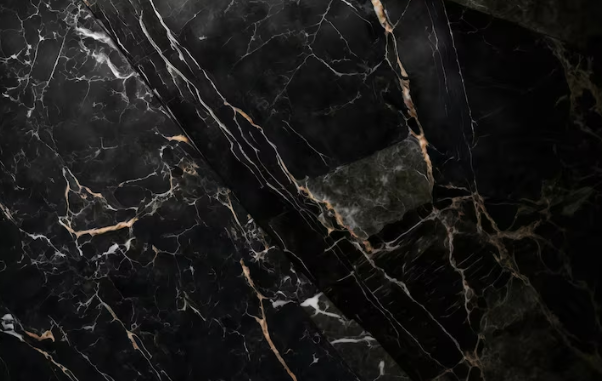When it comes to luxurious and lasting interior design, few materials rival the sophistication of black marble countertops. Their deep, rich hue and natural veining create an aura of elegance that can instantly elevate any kitchen, bathroom, or living space. Beyond their visual appeal, black marble countertops are prized for their durability, versatility, and timeless beauty — making them a favorite choice for homeowners, designers, and architects alike.
In this guide, we’ll explore everything you need to know about black marble countertops — from their aesthetic value and types to maintenance, pros and cons, and design inspiration.
1. Why Choose Black Marble Countertops?
Black marble countertops stand out for their classic luxury and versatility. They blend beautifully with both modern and traditional interiors, offering a sleek and dramatic look that never goes out of style. Whether you’re renovating your kitchen, updating your bathroom vanity, or designing a stylish office space, black marble provides a bold yet refined statement.
Here’s why so many homeowners love them:
a. Unmatched Aesthetic Appeal
The striking contrast of black marble, often interlaced with white, gold, or gray veins, gives it an unmatched elegance. It complements light-colored cabinets beautifully and adds depth to minimalist designs. The natural patterns make each slab unique — no two countertops are ever the same.
b. A Symbol of Luxury
For centuries, marble has been associated with opulence and high-end architecture. Black marble, in particular, evokes a sense of sophistication and exclusivity, often found in luxury homes, upscale hotels, and modern penthouses.
c. Versatility Across Styles
From ultra-modern kitchens to rustic farmhouses, black marble countertops adapt to a wide range of aesthetics. Pair them with matte gold fixtures for a chic look or with stainless steel appliances for a sleek, contemporary vibe.
2. Popular Types of Black Marble
Not all black marbles are the same. Each type comes with unique patterns, undertones, and characteristics. Here are some of the most popular varieties used for countertops:
a. Nero Marquina Marble
Originating from Spain, Nero Marquina is one of the most sought-after black marbles. It features a deep black base highlighted by stark white veining — ideal for dramatic and modern interiors.
b. Black Marquina Gold
This variation of Nero Marquina includes golden veins that add warmth and richness, perfect for glamorous spaces with brass or gold accents.
c. Black Panther Marble
Known for its subtle, wave-like veining, Black Panther marble has a sophisticated and slightly softer look, making it suitable for both kitchens and bathrooms.
d. Portoro Marble
Portoro Gold Marble, from Italy, is a luxurious stone with black, gold, and white veins that create a striking contrast. It’s often used in high-end interiors and decorative applications.
e. Levadia Black Marble
This Greek marble features a dark charcoal background with lighter gray veins, offering a more muted and contemporary look.
Each type brings its own character to your space, so your choice depends on your design goals — whether you prefer bold veining or subtle elegance.
3. The Advantages of Black Marble Countertops
a. Timeless Elegance
Black marble’s appeal doesn’t fade with time. Unlike trendy colors or synthetic materials, marble retains its value and charm for decades. It looks as stunning today as it did centuries ago in classic architecture.
b. Natural Durability
While marble is softer than granite, it’s still a durable natural stone that can withstand everyday use when properly maintained. Its density makes it resistant to cracking and chipping with regular care.
c. Heat Resistance
Marble naturally resists heat, which is a major advantage for kitchen countertops. You can place hot pans or trays briefly on the surface without immediate damage — though using trivets is always recommended.
d. Enhances Property Value
Installing black marble countertops can significantly increase your home’s value. They are a major selling point for potential buyers who appreciate high-end finishes.
e. Unique and Customizable
Every slab of black marble is unique. You can choose different finishes (polished, honed, or leathered) and edge profiles to personalize the look.
4. Potential Drawbacks and How to Overcome Them
Like all natural materials, black marble has some considerations. Knowing these can help you maintain its beauty for years.
a. Susceptibility to Stains
Marble is porous, meaning it can absorb liquids like wine, coffee, or oils if not sealed properly. The solution? Regular sealing. Applying a high-quality sealant every 6–12 months will protect your countertop from stains.
b. Etching from Acids
Acidic substances like lemon juice or vinegar can cause dull spots known as etches. To prevent this, always wipe spills immediately and use coasters or trays for beverages.
c. Requires Maintenance
While black marble is stunning, it does need consistent care — gentle cleaning, sealing, and protection from scratches. However, many homeowners find this upkeep worth the timeless aesthetic reward.
d. Cost Factor
Premium black marble like Portoro or Nero Marquina can be expensive. But its longevity and luxury appeal make it a smart long-term investment.
5. Maintenance Tips for Black Marble Countertops
To keep your black marble countertops looking flawless, follow these practical care tips:
a. Regular Cleaning
Use a soft cloth or sponge with mild soap and warm water. Avoid abrasive cleaners or scrubbing pads, as they can dull the surface.
b. Avoid Harsh Chemicals
Stay away from acidic or bleach-based cleaners. Use pH-neutral cleaners specifically formulated for natural stone.
c. Seal Periodically
Sealing is crucial. It creates a protective barrier that prevents staining and etching. Your fabricator can recommend the right type of sealant based on your marble variety.
d. Use Cutting Boards
Avoid cutting directly on the marble surface. Use cutting boards to protect against scratches and knife marks.
e. Wipe Spills Immediately
Quickly cleaning up spills — especially acidic or colored liquids — prevents permanent damage.
f. Polish for Shine
Occasional polishing can restore your marble’s natural luster. Use products designed for marble, or consult a professional for deep polishing.
6. Design Ideas for Black Marble Countertops
a. Monochrome Luxury
Pair black marble countertops with black cabinets for a bold, cohesive look. Add gold or brass hardware to break up the darkness with warm accents.
b. Contrast with White Cabinets
The timeless black-and-white kitchen never goes out of style. White cabinetry, black marble countertops, and stainless-steel appliances create a clean yet dramatic aesthetic.
c. Minimalist Modern
For a sleek, modern vibe, combine honed black marble with handleless cabinetry and matte finishes. The soft texture gives a contemporary yet sophisticated appearance.
d. Industrial Chic
Black marble countertops also shine in industrial designs. Pair them with concrete walls, metal fixtures, and open shelving for a refined urban look.
e. Bathroom Elegance
In bathrooms, black marble countertops or vanity tops create a spa-like retreat. Complement them with gold faucets and white porcelain basins for a stunning effect.
f. Statement Island
If you’re not ready to commit to full black countertops, consider using black marble for your kitchen island. It becomes a luxurious focal point in any room.
7. Black Marble Countertops vs. Other Materials
Here’s how black marble compares with other popular countertop options:
| Feature | Black Marble | Granite | Quartz | Laminate |
|---|---|---|---|---|
| Appearance | Luxurious, unique veining | Natural, speckled | Consistent patterns | Printed designs |
| Durability | Moderate | Very high | High | Low |
| Heat Resistance | High | Very high | Medium | Low |
| Maintenance | Requires sealing | Occasional sealing | Low maintenance | Very low |
| Cost | $$$$ | $$$ | $$$ | $ |
| Uniqueness | Each slab is one-of-a-kind | Natural variations | Engineered uniformity | Artificial |
If you value natural beauty and timeless appeal, black marble wins hands down. For homeowners seeking easy maintenance, quartz may be a better fit. Ultimately, the choice depends on your lifestyle and aesthetic priorities.
8. Cost and Installation Considerations
The cost of black marble countertops varies depending on the type, quality, and source of the marble. On average:
- Standard black marble: $60–$100 per square foot
- Premium types (e.g., Portoro, Nero Marquina): $120–$250+ per square foot
- Installation costs: $40–$100 per square foot
Professional installation is highly recommended due to marble’s weight and precision cutting requirements. An expert fabricator ensures proper sealing, edge finishing, and alignment.
9. Eco-Friendly and Sustainable Aspects
Choosing black marble countertops also aligns with sustainable design principles. As a natural material, marble is eco-friendly compared to synthetic surfaces made from plastics or resins. It’s long-lasting, recyclable, and requires minimal chemical processing — reducing its environmental footprint.
10. The Timeless Appeal of Black Marble
Trends may come and go, but black marble countertops remain an enduring symbol of taste and refinement. Whether used in kitchens, bathrooms, or commercial spaces, they exude confidence and character. Their dark hue serves as a perfect backdrop to highlight other design elements — from metallic accents to natural wood tones.
Black marble has adorned palaces, temples, and luxury villas for centuries — and it continues to be a top choice for modern interiors seeking both drama and elegance.
Conclusion
Black marble countertops are more than just a design choice — they’re a statement of sophistication and timeless beauty. Their deep, rich tones, natural veining, and polished finish transform any space into a luxurious haven. While they require a bit of care, the reward is a stunning surface that will last for generations.
If you’re looking to combine elegance, durability, and lasting style, black marble countertops are an investment worth making. They’ll never go out of fashion — only gain more character and charm with time.



